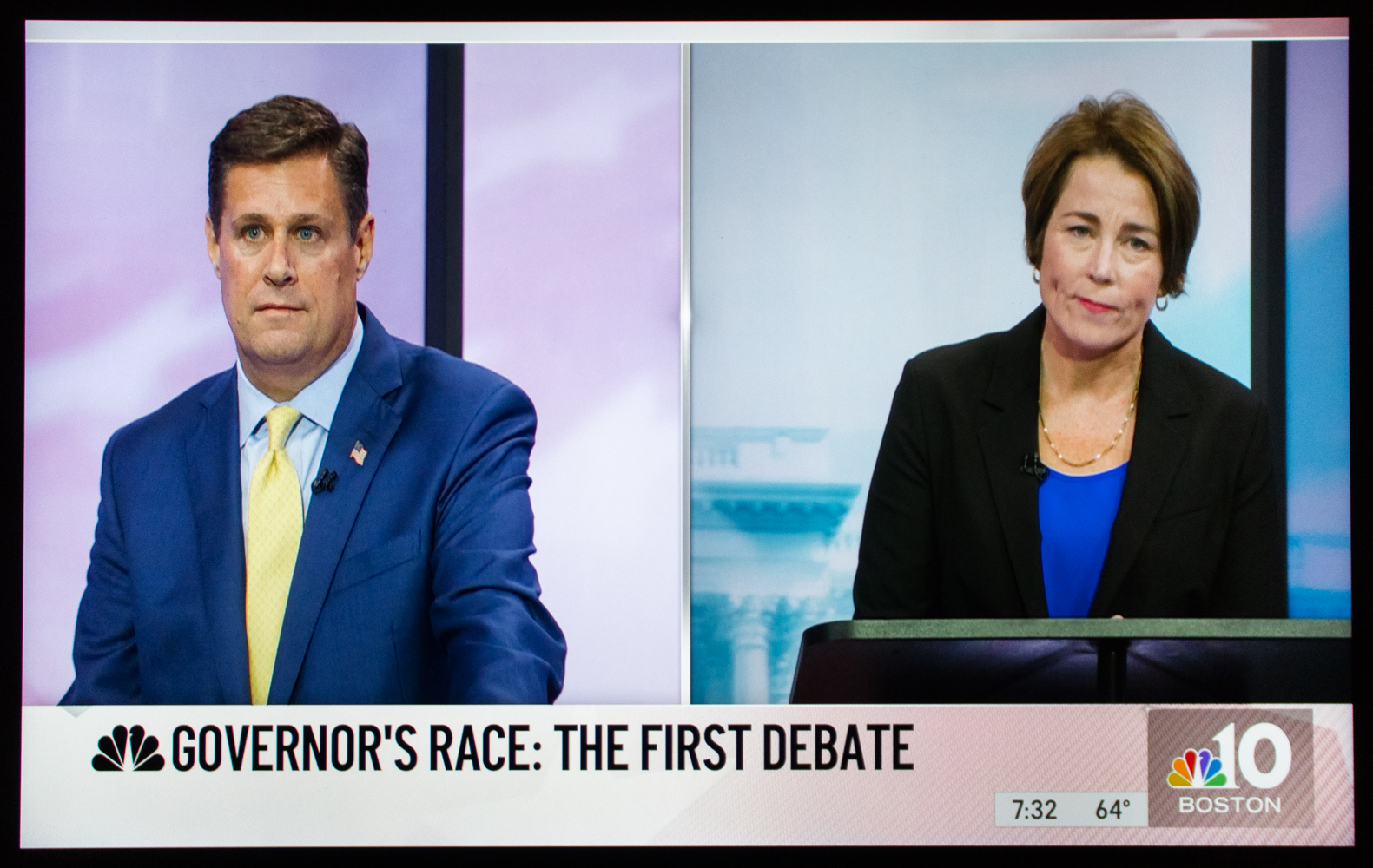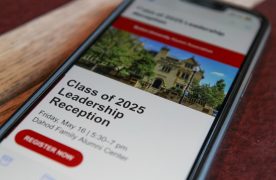
Democrat Maura Healey and Republican Geoff Diehl, candidates for Massachusetts governor, debated Oct. 20 on WCVB in partnership with The Boston Globe, WBUR and Univision with moderator Ed Harding.
Healey, the current state attorney general, promised tax cuts for seniors, renters and middle-lower income families and to pass Governor Charlie Baker’s tax reform. Diehl agreed with the tax cut and said the government already had enough money.
“I don’t anticipate ever raising the tax,” Diehl said.
Diehl then blamed Healey for driving the living expense high, especially with energy prices. Healey, a supporter of renewable energy, blocked the pipeline project in Massachusetts. She instead called upon the Federal Energy Regulatory Commission to consider the environmental impacts of the pipeline, according to an April press release.
Healey said that she does not want to give more power and control to big oil and fossil fuels. She said she thinks Massachusetts should be “strong and energy independent.”
Healey said she has plans to appoint a secretary of housing and invest more in housing programs to keep housing costs affordable.
“I want Massachusetts to be a place where if you are here, you can stay here. That’s the goal,” Healey said.
Diehl suggested alleviating the transportation pressure and exploring possibilities in nearby cities as hubs for business. He suggested the government can use the revenue from the cannabis commission as funds for housing.
On education, Diehl said he disagreed with the tuition-free college movement and called it the “wrong way to go” since people who did not go to college should not be responsible for other people’s education.
Healey opposed Diehl’s ideas of privatization of education and said that “it is not something Massachusetts has ever been about.” She said her focus on education supports higher education, vocational schools and community colleges. Specifically, she said she developed a plan called “MassReconnect” which would help people 25 and older enter higher education.
Later, Healey criticized her opponent on his reaction to the overturning of Roe v. Wade and commented that his “record and his actions on this could not be more clear.” Diehl responded by detailing the difference between governor and legislator and said he would not have a deciding say on repealing abortion in the state.
“There is no way I am changing that law,” said Diehl.
On the other hand, Healey took a more active approach and said she would be firmly obliged to protect the rights of women.
“I will be a governor who will protect reproductive freedom, who will support and protect our doctors, our providers, and always protect the right of women to make that intensely personal and often difficult decision for herself,” Healey said.
On the MBTA, Healey said she planned to appoint a safety chief, make the trains accountable and ensure the workforce’s abundance. Diehl agreed but focused more on COVID-19-related issues, like rehiring people who lost their jobs due to vaccine mandates.
When asked about undocumented immigrants, Diehl and Healey both agreed that the state should speed up the process. Healey said she is “proud of Massachusetts” for providing shelters and food for migrants who flew into Martha’s Vineyard a few weeks ago, but called congressional inaction a “shame.”
Healey turned down Diehl’s invitation to the third debate, according to NBC Boston, making this the final debate before the Nov. 8 election.











